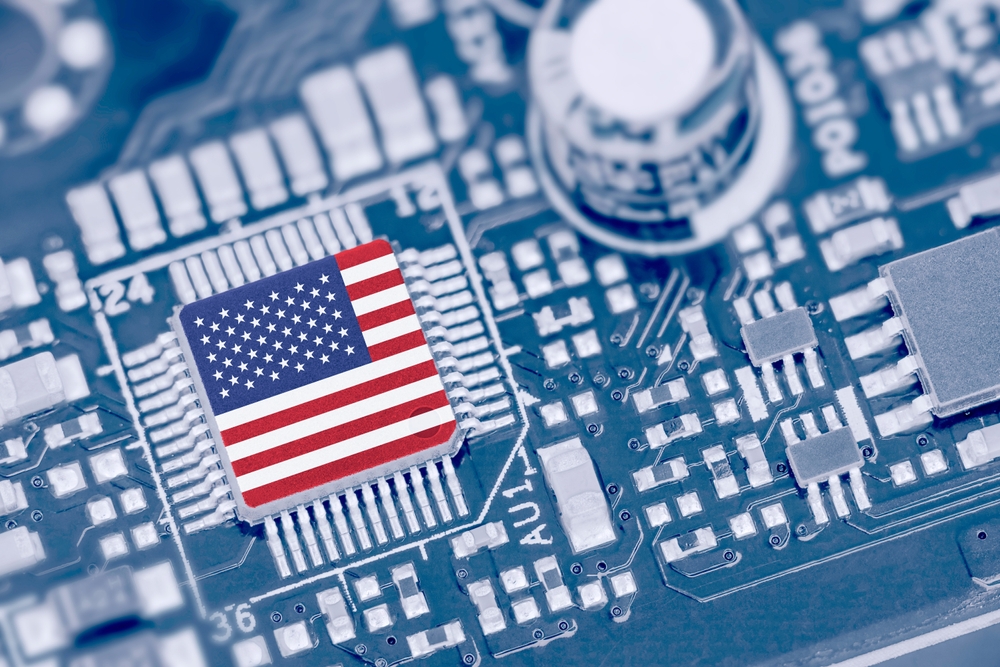The Commerce Department recently announced plans to provide significant funding to companies engaged in semiconductor manufacturing and other research and development (R&D) sectors. This initiative is part of the CHIPS For America program, a bill signed by President Biden in 2022. The program has already provided substantial support to major companies. For instance, Intel received $8.5 billion to advance its semiconductor projects in the United States. Other recipients include Samsung, Micron, and Taiwan Semiconductor. Additionally, funds have been earmarked to support smaller, innovative firms. The Chamber of Commerce has issued a Notice of Funding Opportunity (NOFO) for companies to submit applications.
The CHIPS Act for America Recap
The CHIPS and Science Act, a bipartisan bill signed into law in August 2022, aims to strengthen the economy, revitalize the American semiconductor industry, and enhance national security. According to CNBC, government officials have stated that the goal is to “attract as much private investment as possible while bolstering supply chain resilience and economic security by funding U.S.-based facilities in areas such as materials and packaging.”
About The Semiconductor Industry
The semiconductor industry is a vital sector of the global economy, responsible for designing, manufacturing, and distributing semiconductor devices. These devices, commonly known as semiconductors or chips, are essential components in a wide range of electronic products and systems. Here is an overview of the industry:
Key Components
- Semiconductors: These are materials with electrical conductivity between that of a conductor and an insulator. Silicon is the most commonly used material.
- Integrated Circuits (ICs): Also known as microchips, ICs are small electronic circuits made of semiconductor material that contain many miniaturized components like transistors and resistors.
- Transistors: Fundamental building blocks of modern electronic devices, transistors control the flow of electrical signals.
Industry Segments
- Design: Companies in this segment create the architecture and layout of semiconductor devices. Notable players include Intel, AMD, and NVIDIA.
- Manufacturing: This involves the fabrication of semiconductor wafers and the creation of chips through processes like photolithography and etching. Major manufacturers include TSMC, Samsung, and GlobalFoundries.
- Testing and Packaging: After manufacturing, chips are tested for functionality and reliability. They are then packaged to protect the delicate circuits and facilitate integration into electronic devices.
- Equipment and Materials: This segment provides the specialized machinery and materials needed for semiconductor production, including companies like ASML and Applied Materials.
Applications
Semiconductors are crucial in many modern technologies, including:
- Consumer Electronics: Smartphones, tablets, and laptops.
- Automotive: Advanced driver-assistance systems (ADAS), autonomous vehicles, and in-car entertainment.
- Telecommunications: Networking equipment and 5G infrastructure.
- Healthcare: Medical devices and diagnostic equipment.
- Industrial: Automation systems, robotics, and sensors.
Economic Impact
The semiconductor industry is a significant driver of economic growth, contributing to advancements in technology and productivity across multiple sectors. It supports millions of jobs worldwide and is a major source of innovation and investment.
Purpose of CHIPS For America
Technological advancements in fields like artificial intelligence, autonomous vehicles, biomedical devices, and smartphones rely heavily on progress in semiconductor technology. The semiconductor industry is advancing rapidly, featuring faster data processing and the development of smaller, more powerful chips.
The semiconductor packaging material market is crucial in this sector, with materials and processes that protect semiconductors and enhance their performance. Advanced packaging technologies, such as 3D packaging and system-in-package (SiP) solutions, are driving innovation across various industries. The CHIPS For America program is dedicated to ensuring that American companies remain leaders in these and related technological advancements.
How Does Invoice Financing for Manufacturers Work?
Invoice financing for manufacturers works by using unpaid invoices as collateral to access immediate cash flow. You submit your outstanding invoices to a factoring company, who gives you an advance on the value of your unpaid invoice. You put your money to work immediately, while the factoring company works with your customer to settle the invoice according to the original payment terms.
Rivera Finance Can Help
Riviera Finance will help with funding for those who support facilities for this industry, including transportation, construction, facility workers, AC, concrete, among others. Contact us online for a free, no obligation consultation today.




